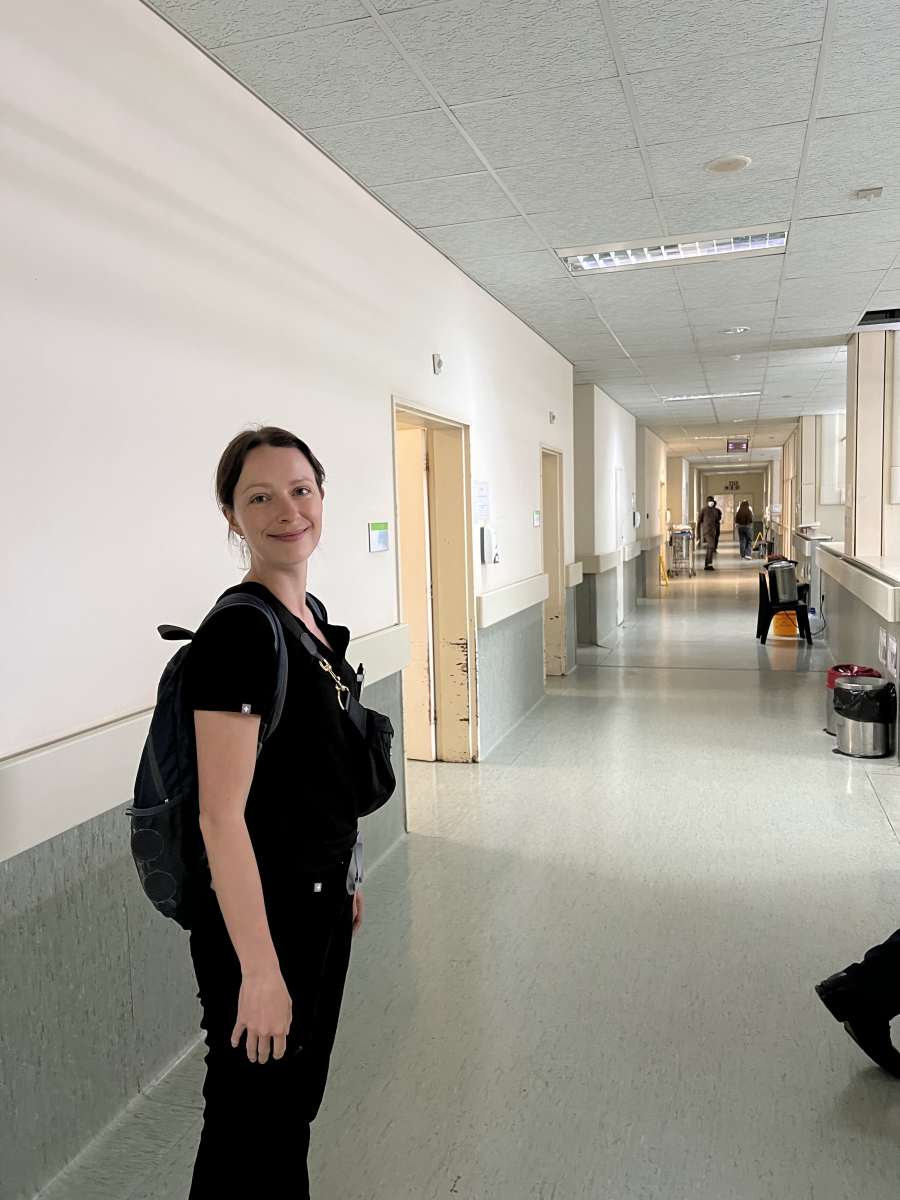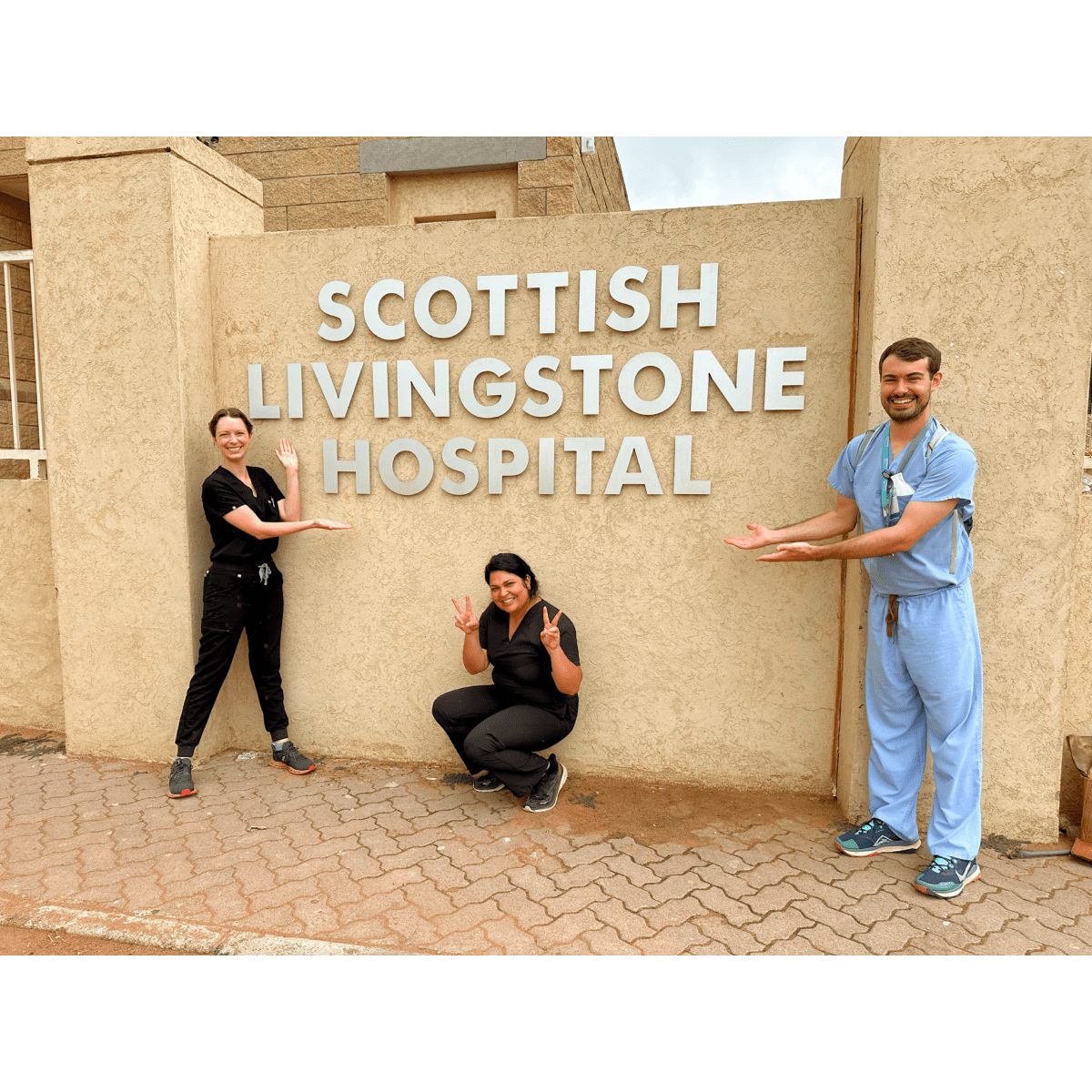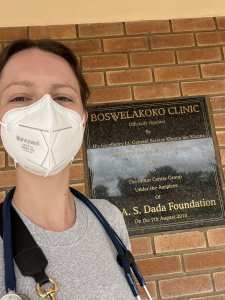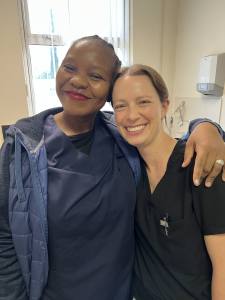I am excited to undertake a month-long Internal Medicine elective in Botswana, coordinated through Beth Israel Deaconess Medical Center, from late January to mid-February. This will comprise part of my PGY-2 training in Internal Medicine at BIDMC. I will be working at Scottish Livingstone Hospital in Molepolole, which is a government-run district hospital. Not only will I be working daily on the wards to care for adults with a variety of acute conditions, but I’ve also been doing research virtually for several months to design and implement a new series of Rapid Response simulations for the medical students and residents who are training through University of Botswana, and I’m excited to continue my research on-the-ground! I am seeking financial assistance to help cover the costs of travel and flights for this important professional development opportunity.
In Molepolole, I will be serving a diverse patient population at Scottish Livingstone Hospital, the public district referral hospital for Kweneng District and the gateway to the Kalahari Desert. In this village, many individuals face a range of acute medical conditions amidst resource constraints. This community is characterized by a high prevalence of infectious diseases, including HIV/AIDS, along with non-communicable diseases like hypertension and diabetes. My role will involve not only providing direct patient care but also contributing to the training of local medical students and residents. By implementing Rapid Response simulations, I aim to enhance the skills of future healthcare providers, ultimately improving the quality of care available to this underserved population long after I leave. Through my efforts, I hope to empower both patients and healthcare trainees, fostering a sustainable impact on the community's health.
I hope that my time in Botswana will have a profound impact on both the local community and my future career as an aspiring pulmonary and critical care physician and medical educator. By working directly with patients facing acute medical challenges, I will not only enhance my clinical skills but also deepen my understanding of the unique healthcare needs in resource-limited settings. This experience will inform my approach to patient care, particularly in managing complex cases often seen in pulmonary and critical care.
Moreover, my involvement in developing Rapid Response simulations for local trainees will help cultivate a culture of preparedness and collaboration within the healthcare team. By equipping future healthcare providers with critical skills, I plan to contribute to building a more resilient healthcare system in Molepolole, which can better respond to both routine and emergency situations, as well as deepen my own knowledge of adult learning theory.
These learnings will carry forward into my career as I strive to integrate global health perspectives into my practice and teaching. As a medical educator, I will advocate for incorporating similar simulation training in my future institutions, emphasizing the importance of adaptable, culturally competent care. Ultimately, this experience will not only enhance my medical expertise but also shape me into a physician committed to improving healthcare outcomes both locally and globally, fostering a cycle of learning and growth that benefits patients and healthcare providers alike.












During my time in Botswana, I worked daily on the Female Medical Ward at Scottish Livingstone Hospital, where I helped lead rounds, taught medical students and interns, and gained hands-on experience performing IV insertions, lumbar punctures, and paracenteses in a resource-limited setting. I also gave a morning lecture on septic shock tailored to the local context to the entire housestaff, engaged in outpatient care in both general medicine and the TB/occupational exposure clinics, and collaborated on creating a hospital-wide outcomes database to support future epidemiologic research and quality improvement. We made time for some fun as well - including a safari in Chobe National Park to see hippos, lions, and crocodiles! This experience deepened my clinical skills, expanded my perspective, and affirmed my commitment to global health. I’m grateful to the Dox Foundation for making it possible—and I encourage others to pursue similar opportunities.